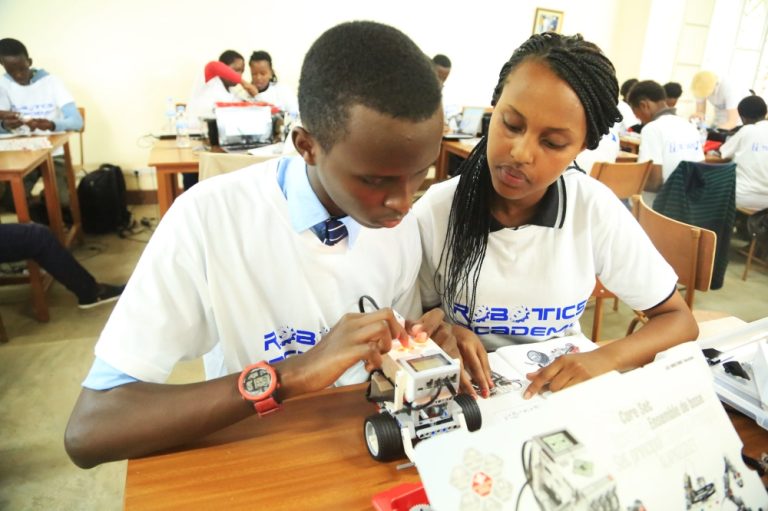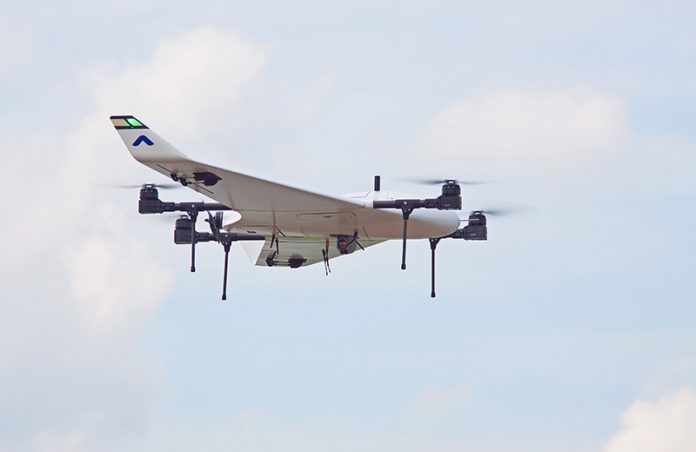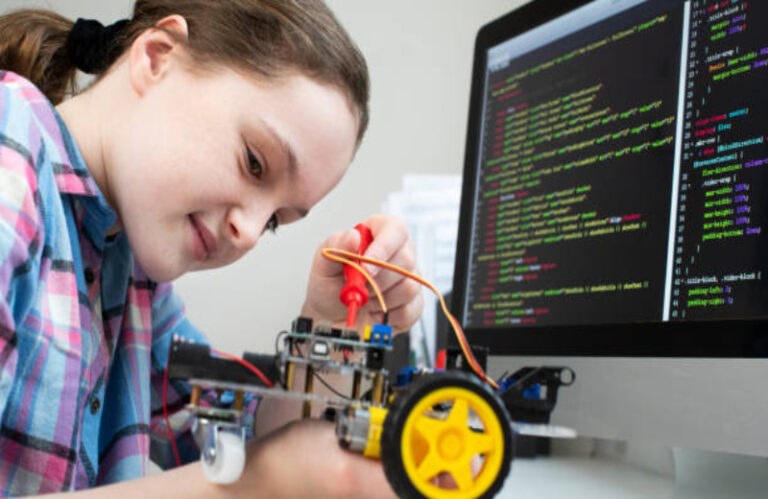How Kalibotics is using robotics to improve edtech, agritech, e-waste management
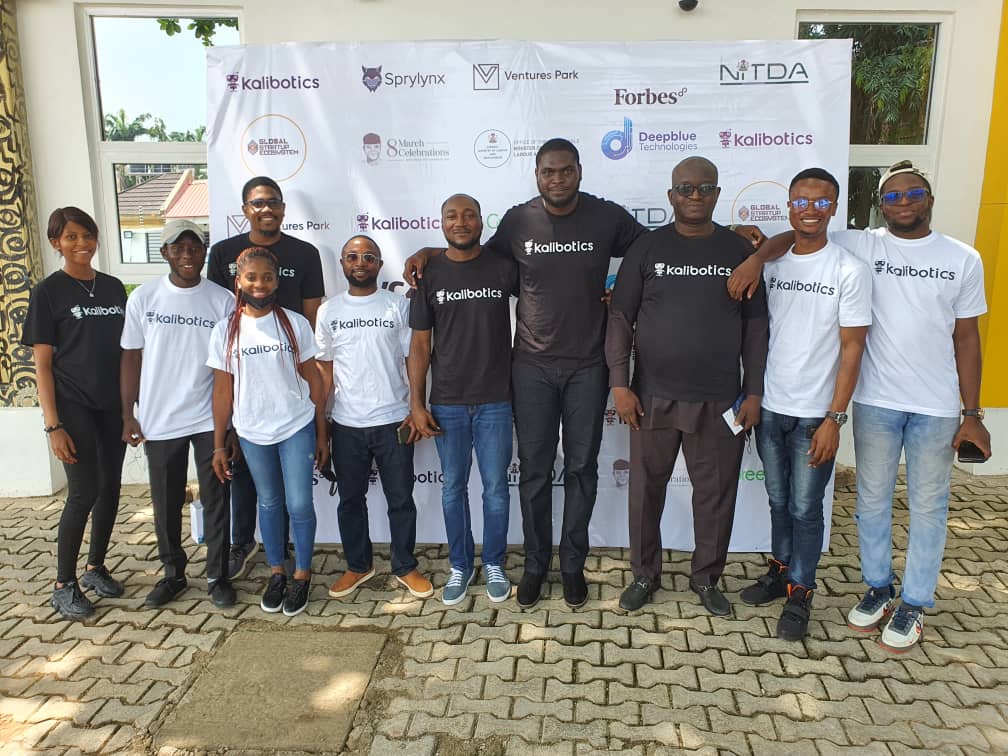
In 2018, two Nigerian siblings, Olugbenga Abejirin and Mayowa Abejirin, who have technical skills in programming and software development, with the former having over a decade of entrepreneurship experience, seized an opportunity to build and deploy smart classrooms in some Nigerian schools.
The project was successful in its early stages until the pandemic struck in 2020, when deployment was slowed because access to spare parts abroad was hampered. The company, on the other hand, had already covered eight Nigerian cities.
The primary goal was to incorporate robotics into these smart classrooms, building on a previous project done in collaboration with a Chinese university to build self-driving smart cars for educational purposes. However, due to licensing issues, this could not be implemented.
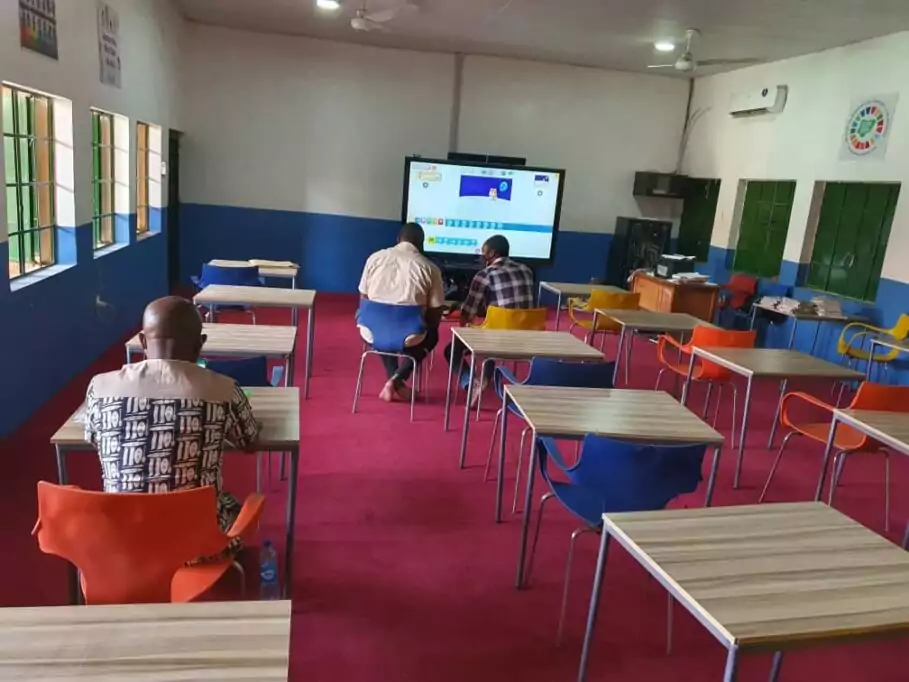
The seemingly discouraging results of these two endeavors opened their eyes to something greater.
Olugbenga describes how they made the best of a difficult situation.
“That was extremely disappointing. We did, however, have a video of the project they were working on. The partners demonstrated what it was capable of, as well as the assembly process. So we told ourselves, ‘We can do this!’ ‘Why don’t we have a company that makes robotic kits for smart classrooms?'”
They decided to go beyond smart classrooms because of their extensive backgrounds in building tech products and entrepreneurship. As a result, the robotics startup Kalibotics was born, named after two words: Kali, a Swahili term for ‘energetic,’ and Robotics. Kalibotics made its official debut in December 2019.
Robots for real-life challenges
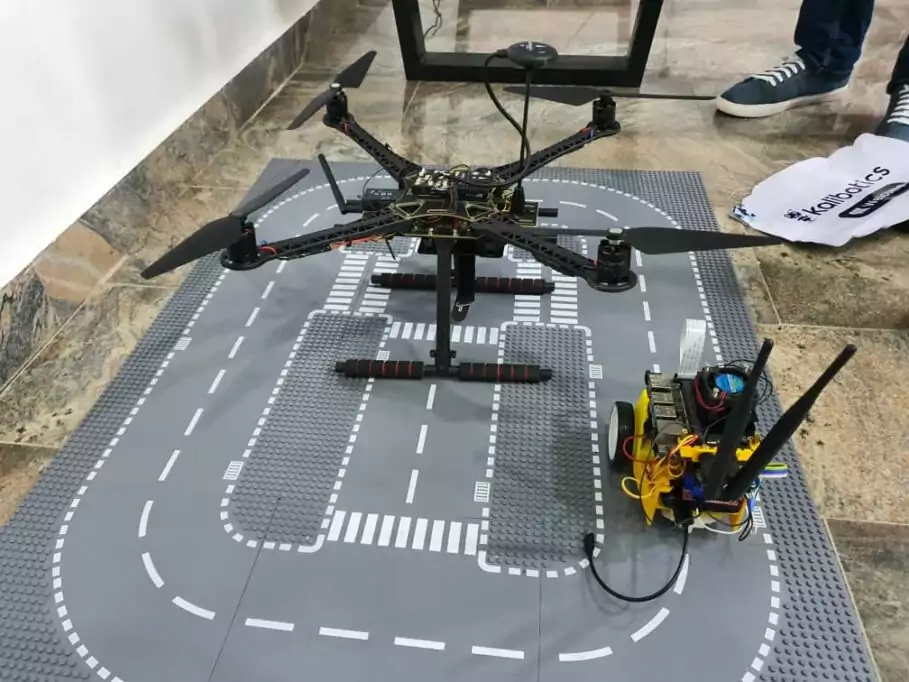
Although education is Kalibotics’ strong suit, the company is also driven to create products that address difficult real-world problems, which Olugbenga refers to as “going all out.”
“Agritech, security, e-waste management, and other fields are some of the areas we’re interested in and building robotic systems for.”
Mayowa elaborates by listing the products that the startup has been able to commercialize, as well as those that it intends to deploy.
“Our first project was an ultrasonic obstacle avoidance car.” Following that, we built an autonomous drone that can be easily repurposed for any artificial intelligence task, such as precision farming and threat avoidance.”
Other functional mini-projects completed by the startup include a robotic arm capable of making a cup of tea and an AI Chessbot — a Chess-playing robot. The prototype for an AI-based robot manipulator capable of sorting e-waste will be completed in a few months.
Solar-powered drones, self-driving rovers, and underwater drones for security and surveillance are currently in the concept stage and will be developed in the coming months. Other specific purpose drones for trash collection are also included.
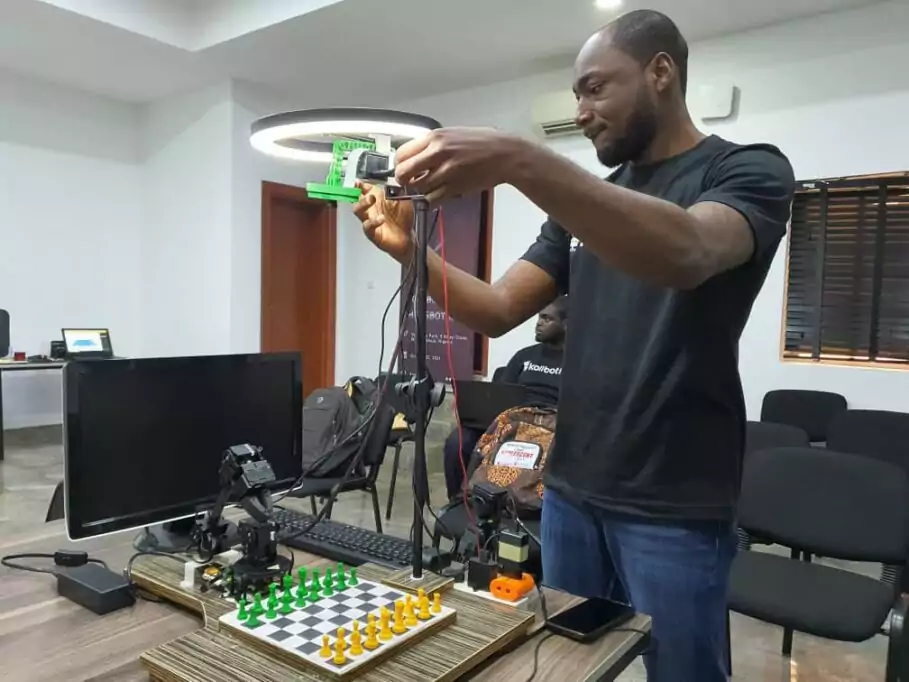
Olugbenga observes that the majority of the completed products have already been commercialized, while others are undergoing testing.
Aside from the hardware, the startup has a proprietary Artificial Intelligence Robotics Coding (ARC) curriculum that it hopes to implement in schools soon.
In response to my skepticism about the startup not focusing solely on industry-specific products in its early stages, Olugbenga believes that the startup is maximizing its capabilities with the three industries in which it currently specializes and will build on this in the long run. He believes that this will propel the startup into a growth phase, and that once all of them have been fully commercialized, the scope will broaden.
Other projects will be launched under the research and development department to keep up with subsequent changes in the technology landscape.
Leading up to Kalibotics
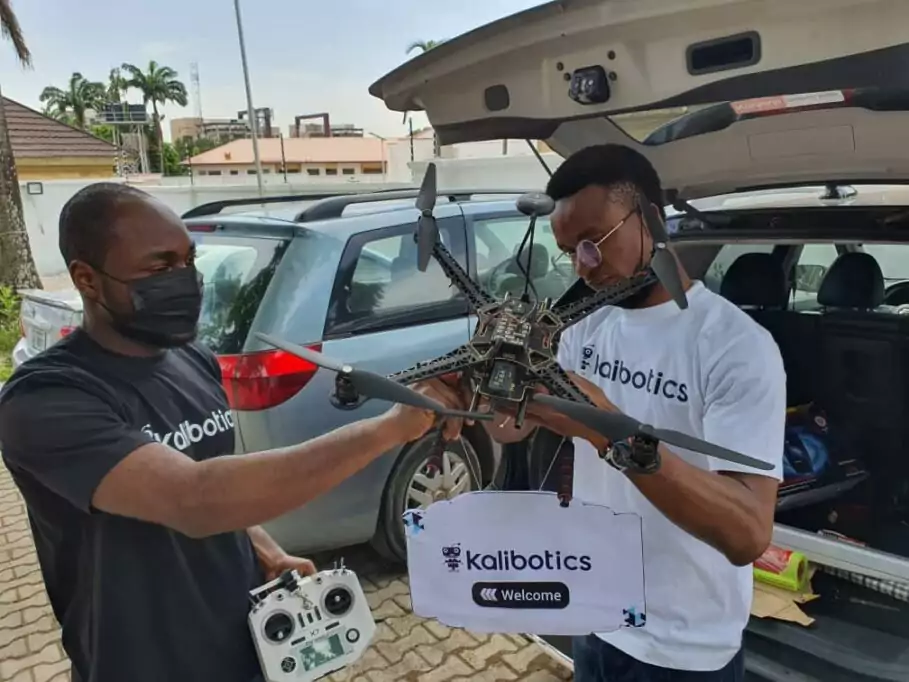
Prior to Kalibotics, the duo had a long history of developing technology and running businesses.
Deepblue Technologies, for example, has been in operation for over 13 years.
Looking back, Olugbenga recalls founding Longhall Consulting, a consulting firm that evolved into Learning Fortress, an e-learning platform.
Following that, he backed Deepblue Technologies, a company that specializes in application development/deployment and technical support services. Surprisingly, the company has been in operation for 13 years.
Olugbenga claims that Kalibotics’ products are primarily aimed at large corporations and the government for obvious reasons. For example, mass waste management is the responsibility of the government; similarly, smallholder farmers are rarely as concerned with precision farming as large farmers are.
The entrepreneur does, however, clarify that there are exemption plans in place for edtech and agritech products.
“We’re starting to see variants. We have a B2C project called Kalibotics Project Alpha. This will provide proprietary kits as well as an e-learning platform, allowing individuals to have robotic kits in their homes and then go through our e-learning to learn how to install and do a variety of interesting projects. This will be available in 2022.”
According to him, introducing a B2C model is unavoidable, not only for inclusiveness, but also to broaden its approachable market and revenue opportunities.
Getting the right attention for funding
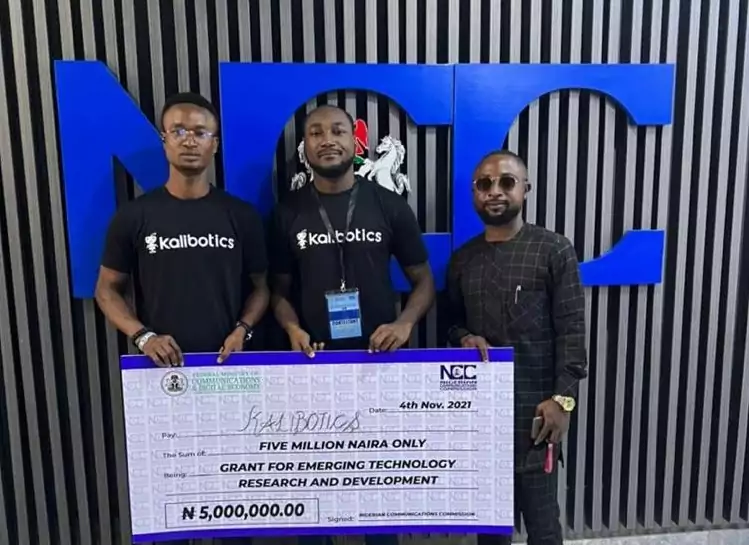
In its early stages, the startup had access to a $25,000 angel investment fund. To commemorate his birthday in 2020, Nigeria’s Vice President, Prof Yemi Osinbajo, funded the March 8TH Initiative, which offered a 1 million ($2,400) grant to innovative businesses. Kalibotics applied and was chosen as one of the recipients due to its innovative and functional solutions.
Kaibotics’ e-waste management project helped the startup become one of four finalists in a 20 million ($48,000) grant competition organized by the Nigerian Communications Commission (NCC) in 2021. However, this was not the first time Kaibotics had been recognized in this manner.
Despite the fact that the startup is still in the pre-profit stage, Olugbenga claims that the startup’s goal is to make a social impact while also making a profit. In comparison to other robotics startups, the founder believes their strength lies in incorporating many high-end technologies into their products, as well as having a trusted business sense, a dependable team, and access to funding.
It hasn’t always been easy, and the founders have had to train people at times to ensure that their products run smoothly.
Because Nigeria is not a manufacturing powerhouse, developing prototypes can be difficult without outside assistance. Despite this, the startup has attracted the attention of potential buyers.


